Affiliate disclosure: This post may contain affiliate links. Please see our Privacy Policy.
The shoulder of an animal is generally a slow cooking or braising cut, and goat shoulder is no exception. The best way to cook a goat shoulder is a long slow roast, with aromatic spices. Most often, seasonings are either middle eastern or Caribbean, as those cultures have a long history of cooking goat meat to perfection.
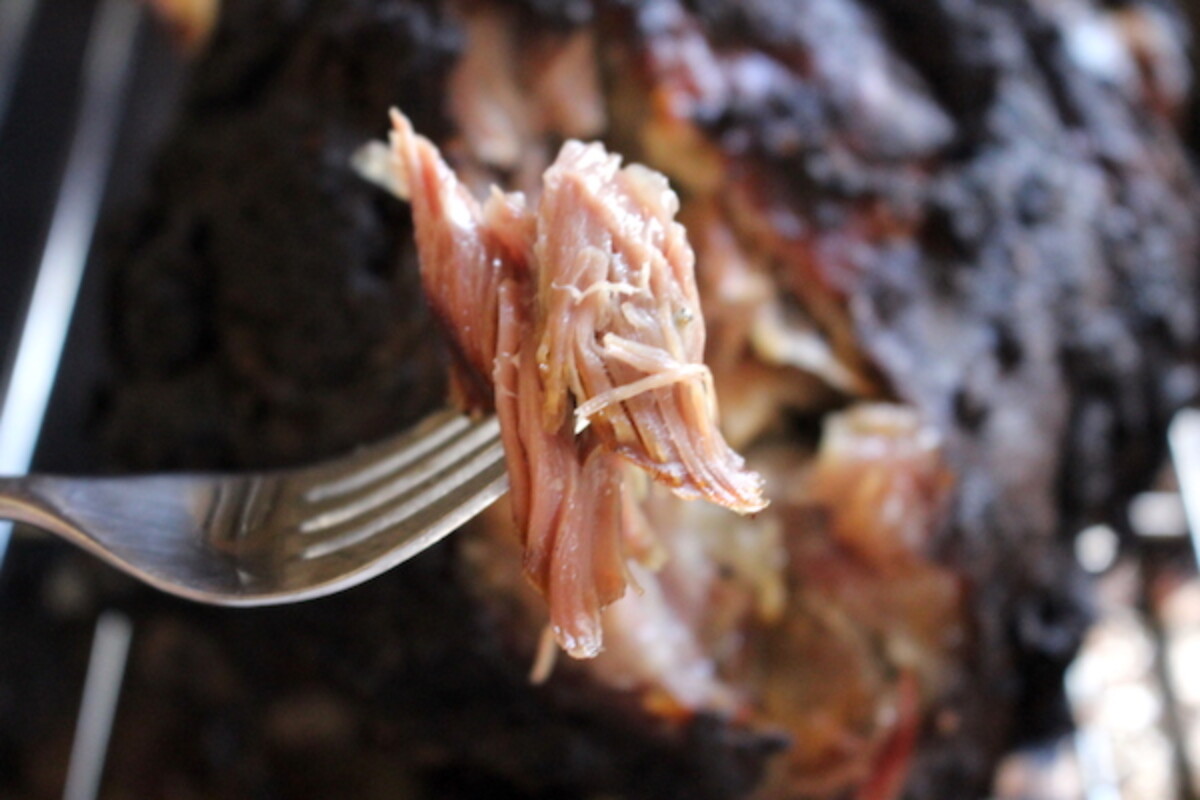
My friends at Green Mountain Girls Farm gifted us a whole goat some time ago and we’ve been slowly working through it, one glorious cut of goat meat at a time. I served the roasted goat leg to my skeptical parents and quickly won them over.
My tiny baby buddy demolished a whole rack of goat ribs on his 2nd birthday, so thus far this goat meat is both grandparent and toddler approved. Now onto the next cut: goat shoulder.
In general, goat meat is cooked long and slow, and shoulders are often cooked longer and lower than other cuts. When I worked in a BBQ restaurant after college, the pork shoulders would be roasted all day at 225 for perfectly tender pulled pork.
With that in mind, I assumed goat shoulder would be an all-day affair. Not quite…
I did a good bit of research and every single recipe I could find had the exact same instructions. Dry rub the meat, and then roast the goat shoulder at 325 degrees F (160ish C) for 4 hours. Simple enough, so that’s what I did.
The vast majority of the recipes I can find are made with middle eastern seasoning, and almost all of them include preserved lemons. For the most part, people associate lemon flavors with chicken, not darker meats…but preserved lemons are different. They’ve been salt-cured, and the harsh sour notes are removed and only a fragrant lemon base full of umami remains.
Making your own preserved lemons is easy, and it only takes salt, lemons and about 3 weeks of patience. They’re also readily available in grocery stores or online. Homemade or store-bought, it doesn’t matter.
Remove the inner pulp of the lemon fruit and then finely mince the cured rind. For a whole goat shoulder, you’ll want about 2 tablespoons of minced preserved lemon rind. Skip it if you want, or use a bit of lemon zest mixed in with the rest of the dry rub.
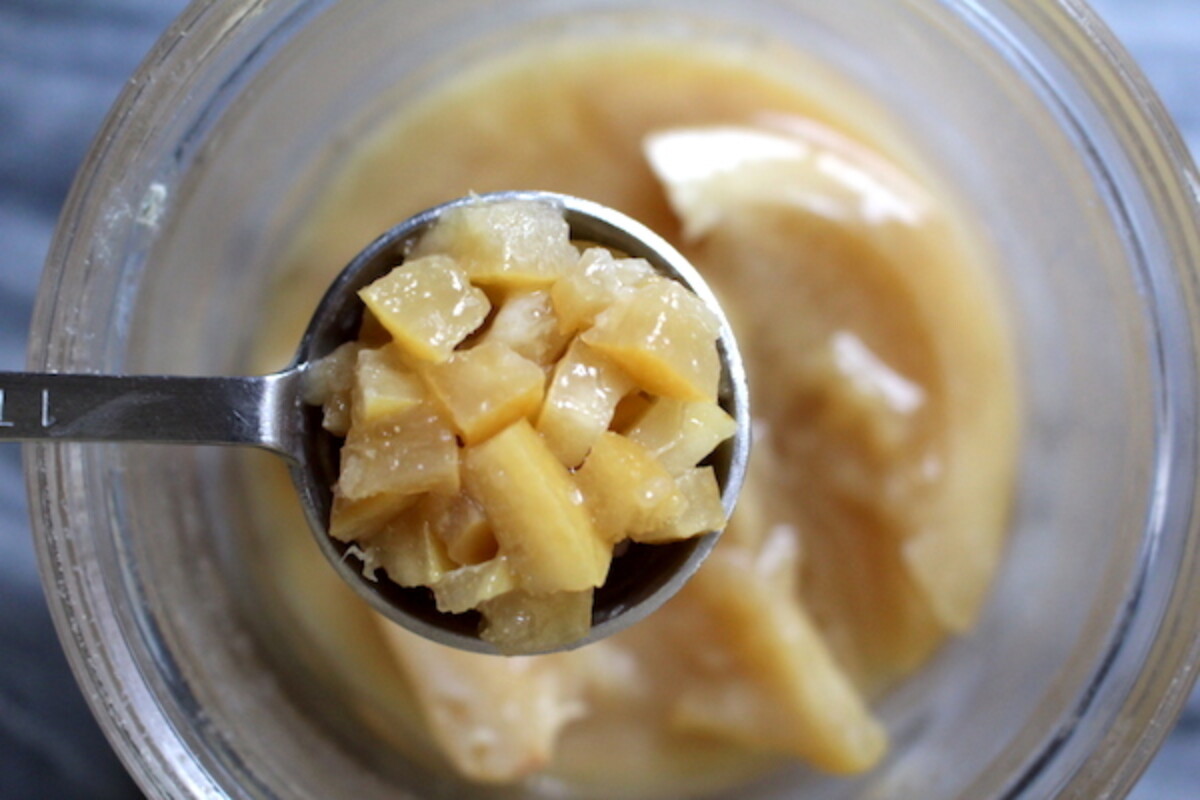
For the goat leg, I used a very simple dry rub made from 2 teaspoons of each salt, sugar, garlic powder and onion powder. That same dry rub would work well on a goat shoulder too, but since I’m taking this in a middle eastern direction, I decided to use a Lebanese spice mix. Baharat or Lebanese 7 spice mix is made from things common on most spice shelves, though you can also buy it prepared.
Oddly every recipe for baharat seems to have a slightly different mix of 7 spices, and in slightly different proportions. It’s clearly not an exact recipe.
For the purposes of this recipe, I’m going to use simple proportions that result in roughly the 2 tablespoons required to rub the goat shoulder. Mix together these ground spices:
- 2 tsp allspice
- 2 tsp cumin
- 1 tsp pepper
- 1/2 tsp cinnamon
- 1/4 tsp nutmeg
- 1/4 tsp cardamom
- 1 pinch cloves
Once you’ve made your spice mix…Take 2 tablespoons minced preserved lemon, 2 tablespoons Baharat, 2 tsp salt, and 2 tsp garlic powder and mix it together thoroughly to form a paste.
Add a little preserved lemon liquid so it’s more spreadable. If you’re not using preserved lemon, skip the paste step and just mix the dry ingredients together to use as a dry rub.
Either way, spread the dry rub or the spice paste mixture all over the outside of the goat shoulder. At this point, if you have time, refrigerate the goat shoulder for 12-24 hours in this flavorful spice rub. Don’t skimp here, it takes a while for the flavors to sink into the meat and you want to give it enough time so that every bite has the benefit of the spice rub.
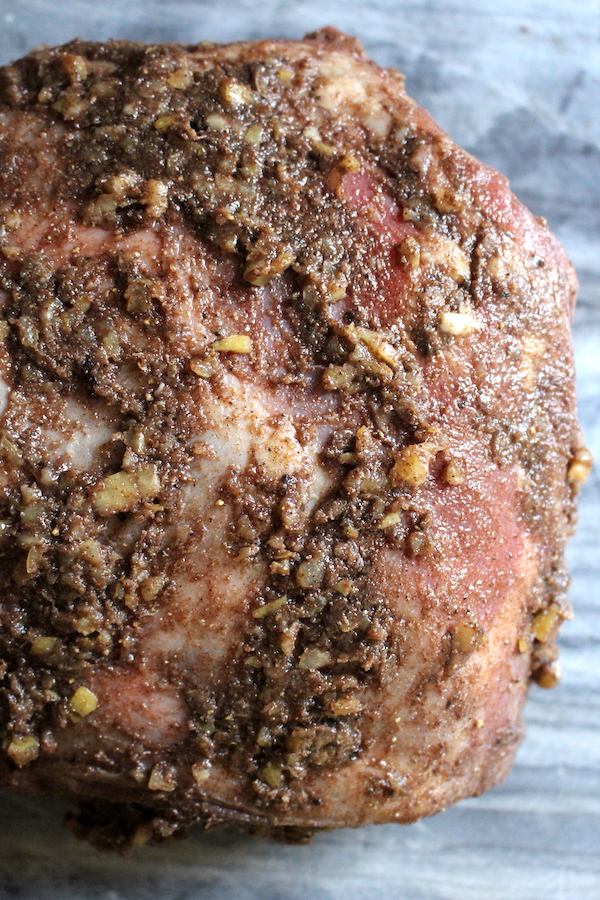
Place the shoulder on a rack above a roasting pan, with 1-2 cups of water below to keep the drippings from burning. Roast the goat shoulder for about 4 hours at 325 until the meat is very tender and it pulls apart easily with a fork.
How Does a Goat Shoulder Taste?
Honestly, quite mild and like a very rich, fatty lamb. What struck me most was how rich and moist the meat was. I was amazed at how well the preserved lemon combined with the richness of the meat, adding the impression of “lemon” but without the tart. I’m definitely going to incorporate preserved lemons into cooking goat again.
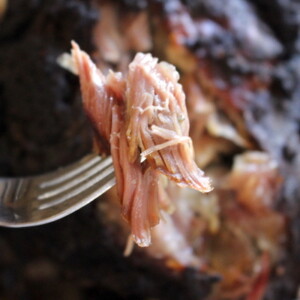
Slow Roasted Goat Shoulder (Lebanese Style)
Ingredients
- 1 goat shoulder, 3 1/2 to 4 lbs
- 2 tbsp preserved lemon, minced (or lemon zest)
- 2 tbsp Baharat spice mix, see note
- 2 tsp salt
- 2 tsp garlic powder
Instructions
- Make a paste by mixing the spices with the preserved lemon (or a dry rub without the preserved lemon). Rub the shoulder refrigerate for 12 to 24 hours to allow the rub to season the meat.
- Place the goat shoulder on a wire rack above a roasting pan with a bit of water at the bottom. Roast the goat shoulder at 325 degrees for about 4 hours, until the meat is fork tender.
More Goat Shoulder Ideas
- Goat Shoulder with Prunes and Preserved Lemons
- Goat Shoulder with Preserved Lemons, Garlic and Corriander
- Chilli Rubbed Goat Shoulder
- Braised Goat Shoulder with Sweet Paprika
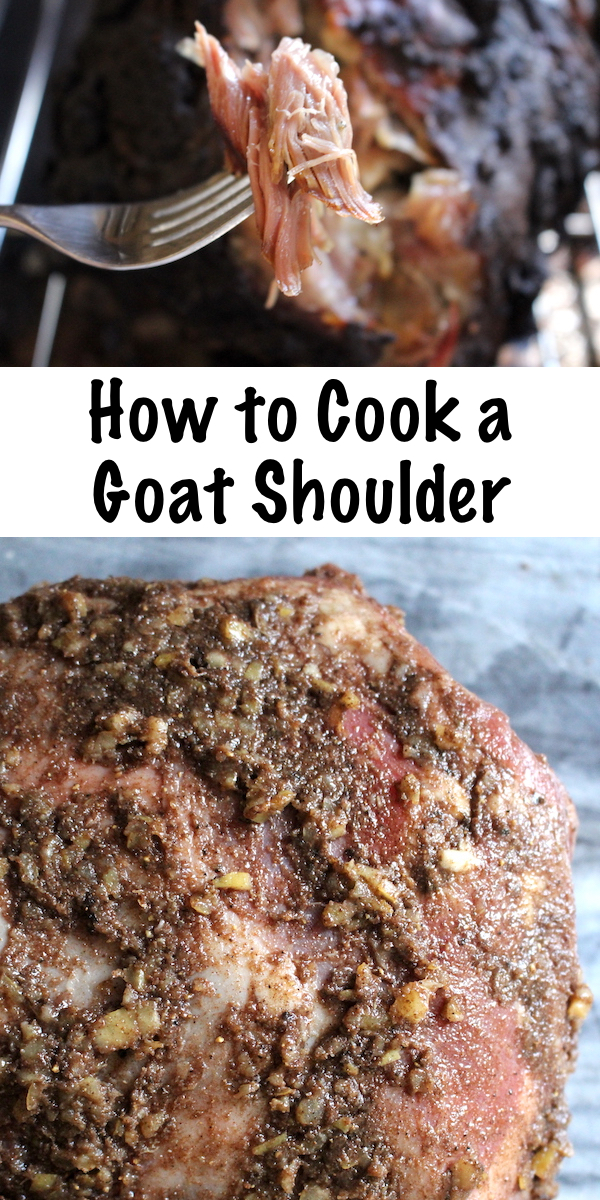
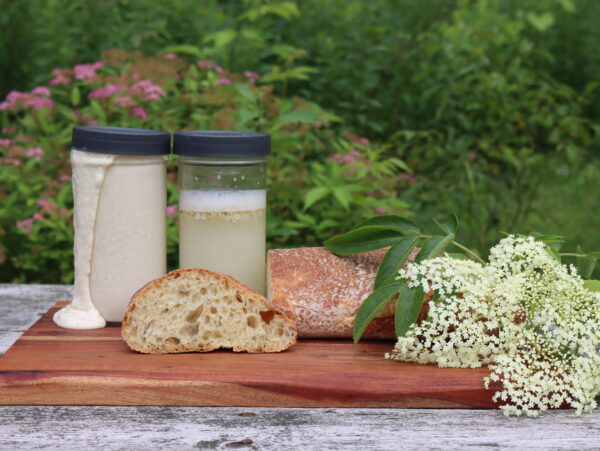
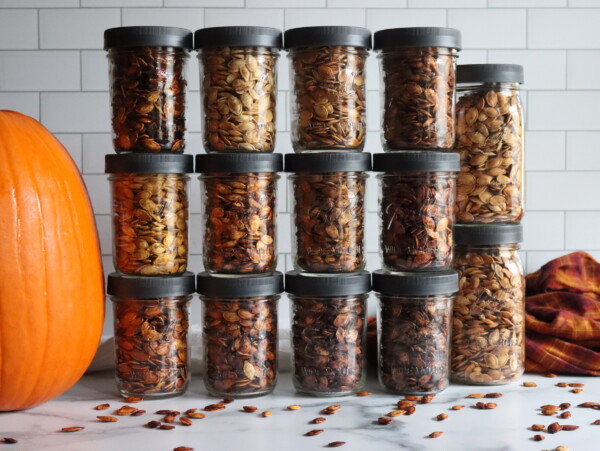
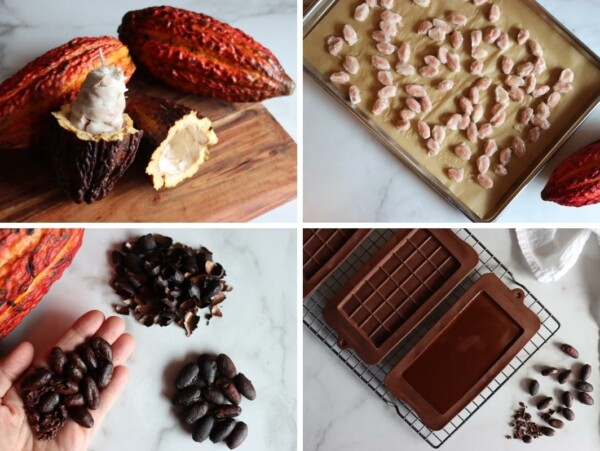
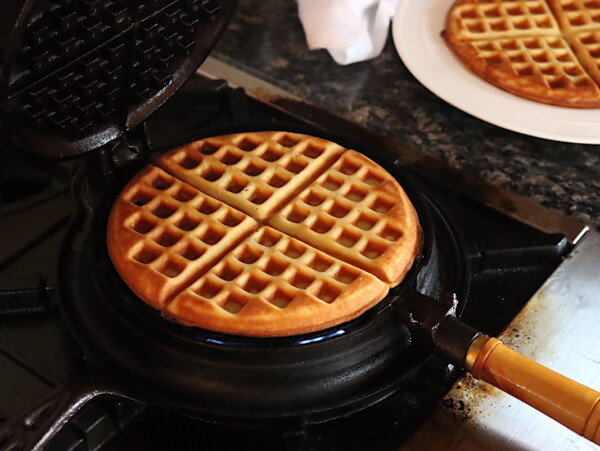





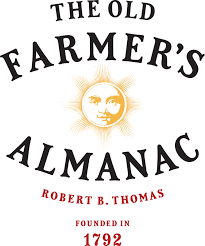




Could I do this recipie with a leg of goat instead?
Yes, you could. I actually have a separate recipe for goat leg as well: https://practicalselfreliance.com/goat-leg-recipe/
Can you cook goat roasts in a Weber? Presume you can still baste it and then cover in foil to not to dry it out?
You could probably do that but you will most likely have to add coals to it because the coals probably won’t last long enough for that long of a cook.
Wish he’d said what internal temperature the meat was at when done. So much better way than time.
Was the meat rare? Medium rare? Well done?
This information can be found on the USDA website. Safe cooking temperature for ground goat meat is 160 F. Steaks, chops and roasts should have an internal temp of 145 F before being removed from heat source. Allow the meat to rest for at least 3 minutes before carving.
It’s a 4 hour cook, taken above all of those markers for maximum collagen breakdown. You don’t have rare/medium rare slow roasted meat for that timeframe, it’s impossible.
I would cover this with a foil, at least for about half the time. I did mine exactly how this recipe does and it never become “tender and succulent”. OR make a gravy. It ended up tasting amazing, but very dry and tough, still yummy though.
I had the same experience, even though I did cover with aluminum foil. So I put it in the Instant Pot for 35 minutes and voila, tasty and tender and delicious!! Roasting it first definitely gave it all the flavor, however.